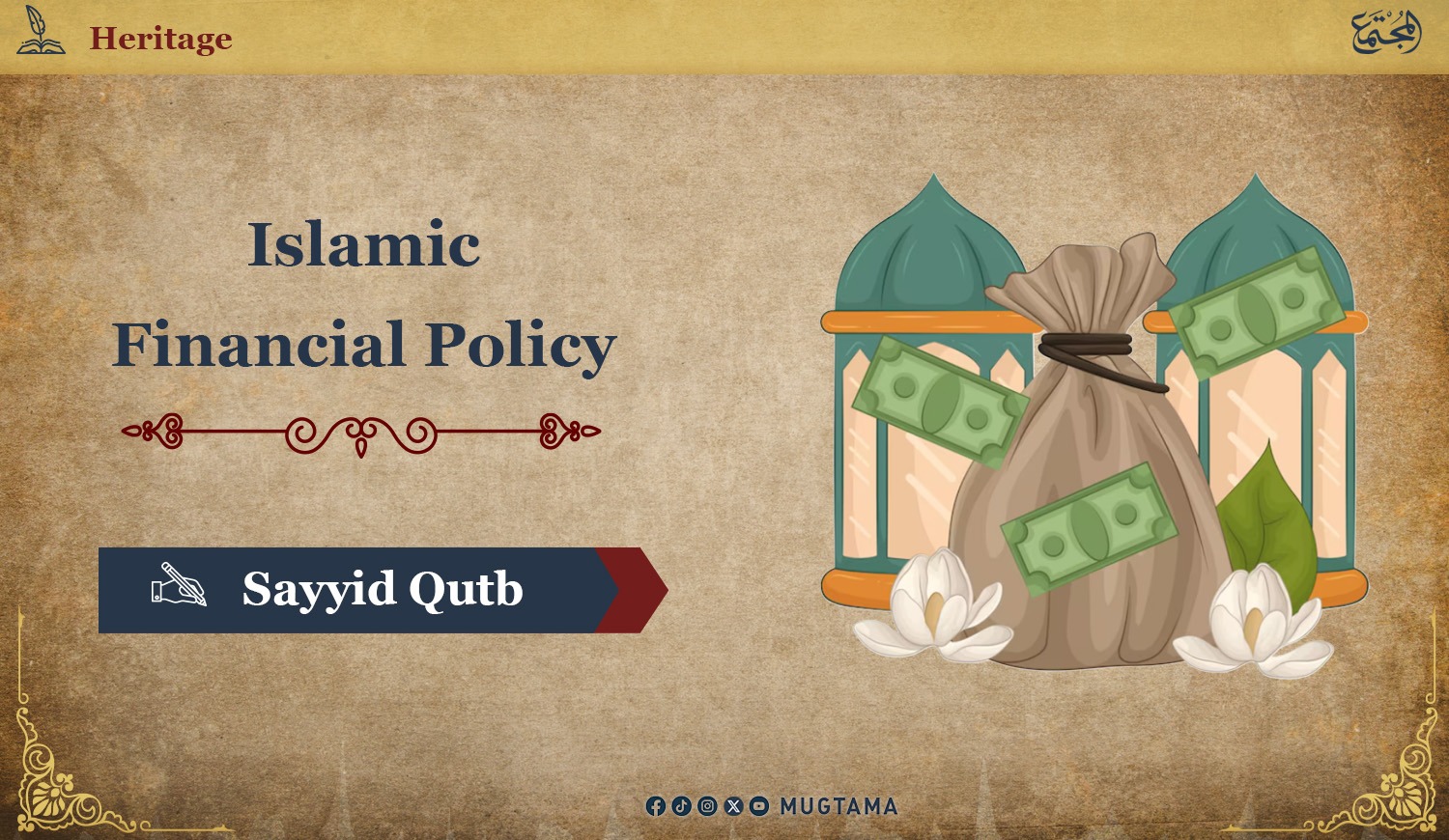Islamic Financial Policy

Islam follows in its financial policy the
guidance of its general theory and comprehensive idea. It first observes in
this policy—the policy of wealth—the
realization of servitude to Allah alone, by subjecting the circulation of
wealth to the Law of Allah. This Law secures the interest of the individual and
secures the interest of the community, maintaining a balance so that neither
the individual is harmed nor the community is harmed, without opposing human
nature, and without obstructing the genuine laws of life and its higher
ultimate goals.
Legislation and Guidance
In achieving this policy, Islam adopts two
fundamental means: legislation and guidance. Through legislation, it attains
practical objectives that ensure the establishment of a righteous society
capable of growth and development. Through guidance, it aims at rising above
mere necessities, aspiring to a higher life, and elevating existence towards
the realm of ideals—a realm not everyone can reach in all circumstances, yet
the door remains always open for elevation and perfection.
Wealth Management
We shall cite here one example regarding
wealth before speaking in detail about financial policy: Islam has made the
right of wealth to be zakah,
which the imam has the authority to fight the people over if they withhold it,
as it is imposed upon them by legislative right and in a fixed known measure.
Then, Islam has given the imam the right—after zakah—to take what averts harm,
removes hardship, and safeguards the collective interest of the Muslims. This
right, like zakah itself, when needed, is subject to the welfare of the ummah,
the justice of the imam, and the general principles of the Islamic system.
Role of Guidance
This is in the domain of legislation. As
for guidance, it endeared to people the idea of divesting themselves of all
their wealth and spending it entirely in the way of Allah. This is Abu Dharr
al-Ghifari (may Allah be pleased with him) narrating from Muhammad (peace and
blessings be upon him): One day the Messenger of Allah (peace be upon him) went
out towards Uhud while I was with him, and he said: ‘O Abu Dharr!’ I
replied: ‘Labbaik, O Allah's Messenger.’ He said: “The rich are in fact the poor
(little rewarded) on the Day of Resurrection except those who spend their
wealth like this, and like this, and like this, to their right, left and back,
but such people are few in number.” Then he said: ‘O Abu Dharr!’ I
replied: ‘Yes, O Messenger of Allah, may my father and mother be sacrificed for
you.’ He said: “It does not please me that it be a mountain of gold that I spend in the
path of Allah and leave even two qirats from it." I said, "
Or two qintars, O Messenger of Allah?" He said, "
No,
rather two qirats." He repeated it three
times, and then he said, "O Abu Dharr, I only say what is lesser, and I do not
say what is greater."
That is legislation, and this is guidance.
Together they form the foundation of financial policy, just as together they
form the foundation of every policy in Islam.
-------------------------------------------------------------
Source:
-
Book: The Foundations of Social Justice by
Sayyid Qutb
Read Also:
-
Waqf: A
Legacy of Giving and Sustainable Development










